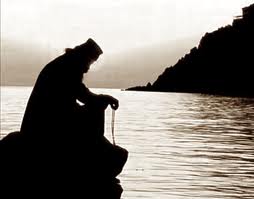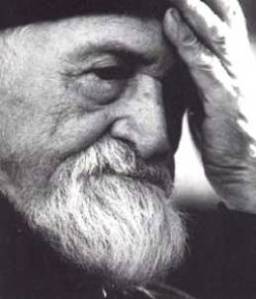 Theology, such as it was understood and lived by the Spiritual Fathers, is not a system of religious knowledge, a collection of theoretical teachings or rational knowledge about God, but a direct experience and actual living of God’s work in one’s heart and life in the world. It is not a discourse-based science, a discussion about God, but a conversation WITH Him, which is done through prayer and in a state of complete cleanliness and abyss of humility. The God of the hermits is more living and real, and His presence is more intensely lived by them than those who speculate about God.
Theology, such as it was understood and lived by the Spiritual Fathers, is not a system of religious knowledge, a collection of theoretical teachings or rational knowledge about God, but a direct experience and actual living of God’s work in one’s heart and life in the world. It is not a discourse-based science, a discussion about God, but a conversation WITH Him, which is done through prayer and in a state of complete cleanliness and abyss of humility. The God of the hermits is more living and real, and His presence is more intensely lived by them than those who speculate about God.
The question of God’s existence and work is not a speculative one, but one based on living, ascesis, and love. The measure of our partaking in the Lord is proportionate with our efforts to clean our passions off more and more and work upon our virtues ever more completely. And a person’s union with God is done in a state of ceaseless prayer and “supra-mindfulness”, in the midst of light and love. Which is why theology does not imply intelligence, but wisdom; neither does it imply a surplus of rationality, but a surplus of prayer.
Fr. Ioan C. Tesu
Excerpt from: http://www.crestinortodox.ro/credinta/prin-stiinta-spre-credinta-96167.html
